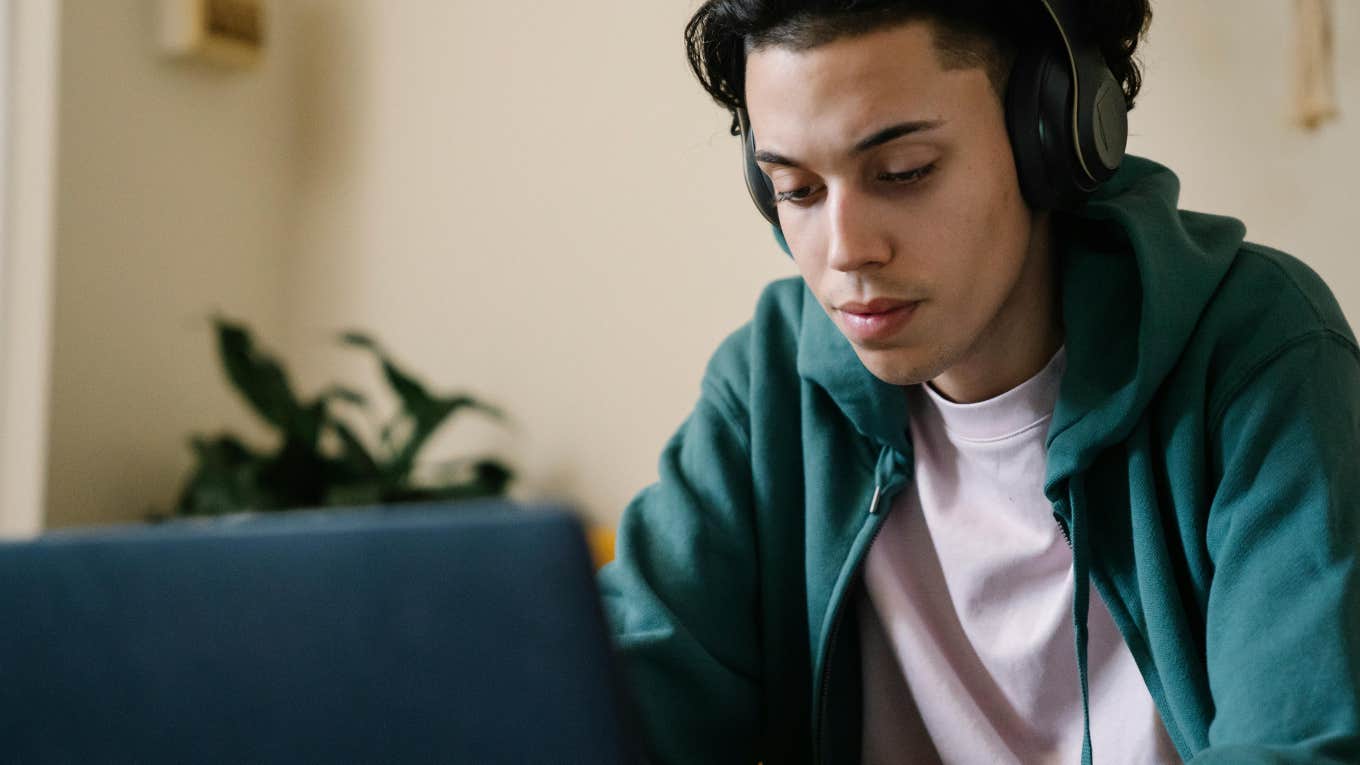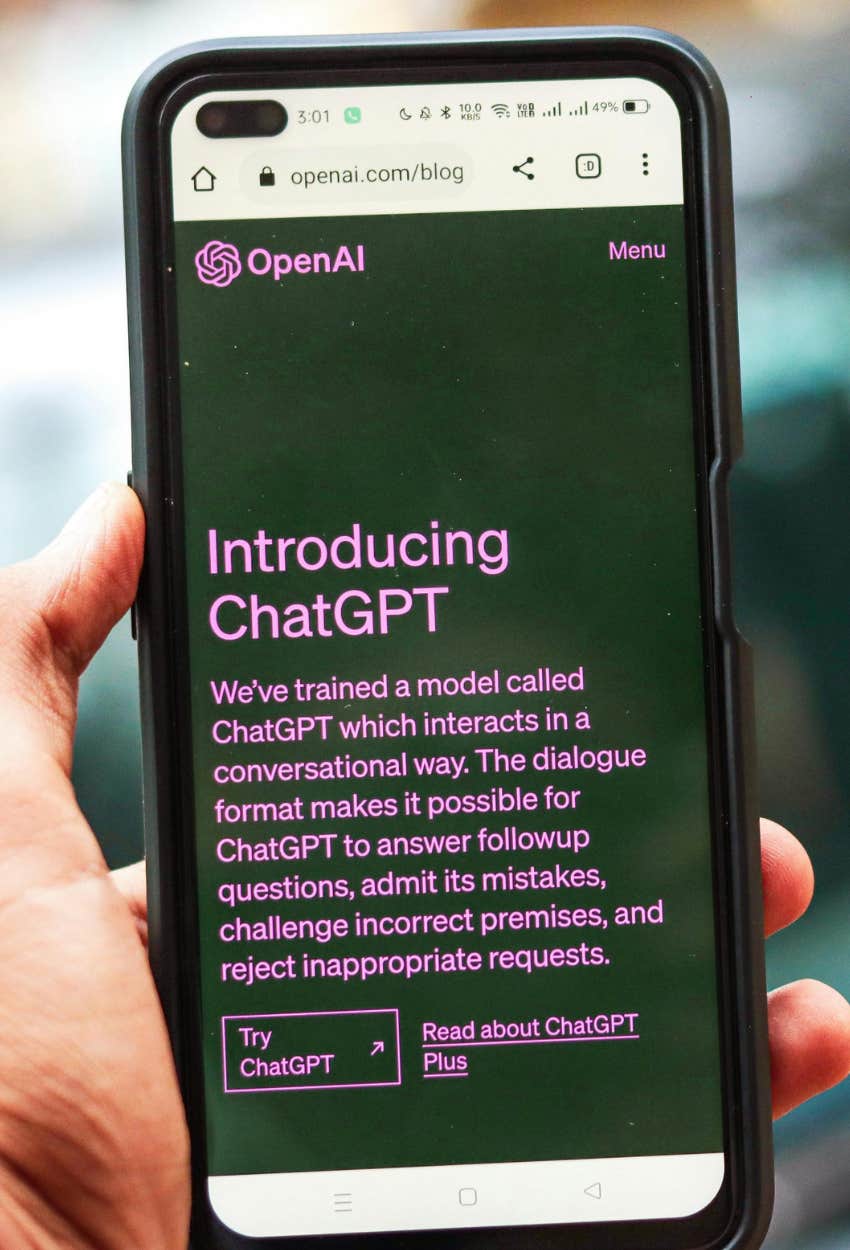ChatGPT Is Now Making 1 In 3 People's Career Decisions & Even More For Gen Z, According To A Study
Didn't the CEO JUST say it's not to be trusted?
 Eren Li | Pexels
Eren Li | Pexels As the so-called "AI revolution" grows, we all seem to be using LLM chatbots like ChatGPT to do more and more things for us, including things that even the company's CEO says it's neither built for nor good at, like telling us the truth.
Nevertheless, people seem to be treating ChatGPT, Claude, Gemini, and the like as all-knowing oracles. And according to a new study, that now includes letting the robots make our career decisions for us… as if the working world weren't a mess already.
ChatGPT is now making 1 in 3 people's career decisions for them, according to a study.
Everywhere you look, people are finding new and inventive ways to use tools like ChatGPT, and it's going far beyond helping us write emails. We're falling in love with it and letting it ruin our marriages, treating it as a religious oracle and letting it kick us into spiritual psychosis, omniscient connection to God itself, and constantly feeding it trade secrets and intellectual property that get us not only fired, but sued. The future is now!
And speaking of getting fired, we're now also letting it make our career decisions for us. That's according to a survey of 1,000 professionals by Southeastern Oklahoma State University, which found that a full third of respondents had let ChatGPT make a career decision for them. Unsurprisingly, the rate was even higher among Gen Zers, at 42%
But unlike those other uses, it seems to be having positive results, rather than destroying people's careers. And letting the little robot help you parse through the whys and wherefores of a tough career path question seems to be yielding some interesting results.
20% said AI tools led them to consider career paths they'd never thought of.
One thing we humans are really, really good at is limiting ourselves. We get a degree in Accounting, and suddenly, any job that's not about accounting is off our radar, whether we enjoy working in accounting or not.
And it seems this is precisely the kind of circular thinking that AI tools are good at breaking us out of. SOSU's study found that nearly 20% of respondents had found themselves considering a career path that had never occurred to them before after ChatGPT suggested they do so.
In fact, a change of career path was in fact the second most popular thing respondents said they used AI tools for, after writing resumes and cover letters. They also lean heavily on the tools to suss out career fields and jobs that are in high demand and high-paying.
Even with wider adoption, trust in AI tools for career decisions still lags, even among Gen Z.
You may have gotten the impression earlier that this writer is not a fan of AI tools. Personally, I tend to think that when a tool's creator goes on the record that it "hallucinates" and users shouldn't "trust it that much," it's probably best to steer clear of it for the time being, or at least not trust it to be your literal therapist. I'm weird like that!
Thankfully, unlike so many other uses, it seems career types share my skepticism. Even with growing use of the tools, SOSU's study found that most people remain cautiously wary of what they receive from AI tools, which are, after all, partly designed to reflect you back at you, and basically tell you what you want to hear, just like social media algorithms.
 Sanket Mishra | Pexels | Canva Pro
Sanket Mishra | Pexels | Canva Pro
That's the dark side of AI tools' ability to do deep research and analysis, and accordingly, professionals are approaching with caution. Sixty percent of those surveyed said they were not yet comfortable using AI tools for career decisions, and 51% said they still wanted a second opinion, even if they were happy with their AI's advice.
Still, even with that wariness, respondents reported overwhelmingly positive results, with 36% saying it made them feel more empowered, and many saying the AI's advice aligned with a human advisor's input. Even when it didn't, 17% said the AI's advice was so good they followed it anyway.
Especially in these times when so much about the working world is opaque at best, it makes sense that a supercomputer that can crack all those codes just might be one of the best career tools you can get.
John Sundholm is a writer, editor, and video personality with 20 years of experience in media and entertainment. He covers culture, mental health, and human interest topics.

